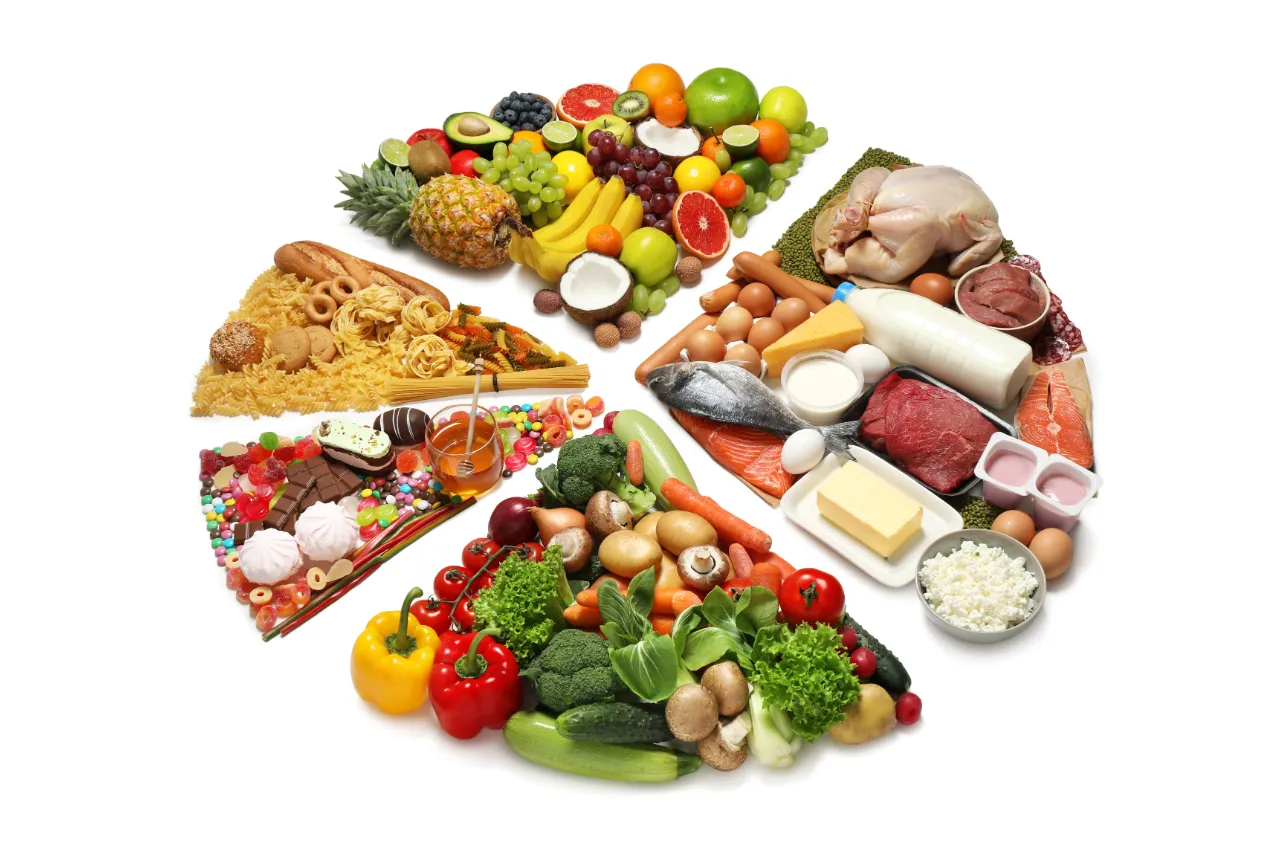The significance of maintaining a balanced and nutritious diet becomes increasingly crucial for overall health and well-being. Balanced nutrition is not just about eating; it’s about providing the body with the essential nutrients it needs to function optimally. In this comprehensive guide, we delve into the importance of balanced nutrition for seniors, explore the unique dietary needs of aging individuals, and offer practical tips for fostering a diet that supports healthy aging.
The Importance of Balanced Nutrition for Seniors
1. Maintaining Physical Health:
Balanced nutrition is the cornerstone of maintaining physical health in the senior years. Essential nutrients, including vitamins, minerals, proteins, and fiber, play key roles in supporting immune function, bone health, and overall vitality.
2. Managing Chronic Conditions:
Many seniors may be dealing with chronic conditions such as diabetes, hypertension, or osteoporosis. A well-balanced diet tailored to specific health needs can help manage these conditions and prevent complications.
3. Preserving Cognitive Function:
Nutrition plays a vital role in preserving cognitive function and reducing the risk of cognitive decline. Certain nutrients, such as omega-3 fatty acids and antioxidants, are known for their brain-boosting properties.
4. Supporting Digestive Health:
A diet rich in fiber, obtained from fruits, vegetables, and whole grains, is essential for supporting digestive health. Adequate fiber intake helps prevent constipation and promotes a healthy gut.
5. Enhancing Heart Health:
Heart health is a primary concern for seniors. A diet low in saturated fats, cholesterol, and sodium, coupled with the inclusion of heart-healthy foods, contributes to cardiovascular well-being.
6. Boosting Energy Levels:
A balanced diet provides the necessary fuel for the body. Seniors with balanced nutrition are likely to experience sustained energy levels, aiding in the performance of daily activities and maintaining an active lifestyle.
7. Strengthening Immune Function:
As the immune system naturally weakens with age, proper nutrition becomes instrumental in supporting immune function. Nutrient-rich foods contribute to a robust immune system, helping the body fight off infections and illnesses.
Key Components of Balanced Nutrition for Seniors
1. Adequate Protein Intake:
Protein is essential for maintaining muscle mass, supporting immune function, and facilitating tissue repair. Good sources of protein for seniors include lean meats, poultry, fish, eggs, dairy products, legumes, and nuts.
2. Calcium and Vitamin D for Bone Health:
Calcium and vitamin D are crucial for bone health, especially as seniors are at an increased risk of osteoporosis and fractures. Dairy products, fortified cereals, leafy greens, and exposure to sunlight are excellent sources.
3. Fiber-Rich Foods:
Fiber is essential for digestive health, preventing constipation, and maintaining a healthy weight. Seniors should include whole grains, fruits, vegetables, and legumes in their diet to meet their fiber needs.
4. Omega-3 Fatty Acids:
Omega-3 fatty acids contribute to heart and brain health. Fatty fish such as salmon and trout, flaxseeds, chia seeds, and walnuts are excellent sources of omega-3s.
5. Antioxidant-Rich Foods:
Antioxidants help protect cells from oxidative stress and inflammation. Colorful fruits and vegetables, such as berries, spinach, kale, and tomatoes, are rich in antioxidants.
6. Hydration:
Staying adequately hydrated is crucial for overall health. Seniors may have a reduced sense of thirst, so it’s essential to encourage regular water intake. Herbal teas, infused water, and hydrating foods like watermelon can also contribute to hydration.
7. Limiting Sodium and Saturated Fats:
Seniors should be mindful of their sodium and saturated fat intake to support heart health. This involves reducing processed foods, opting for lean protein sources, and using herbs and spices for flavoring.
8. Vitamin B12 Supplementation:
As seniors may have a decreased ability to absorb vitamin B12, supplementation or including B12-rich foods like fortified cereals, fish, and dairy products becomes important for maintaining energy levels and neurological health.
Practical Tips for Fostering Balanced Nutrition
1. Plan Well-Balanced Meals:
Create meals that incorporate a variety of food groups. Aim for a colorful plate with a mix of fruits, vegetables, lean proteins, whole grains, and dairy or dairy alternatives.
2. Practice Portion Control:
As metabolism tends to slow down with age, portion control becomes essential. Smaller, nutrient-dense meals can help meet nutritional needs without excessive calorie intake.
3. Choose Nutrient-Rich Snacks:
Opt for healthy snacks such as fresh fruits, yogurt, nuts, or vegetable sticks with hummus. These provide essential nutrients without empty calories.
4. Consult with a Registered Dietitian:
For personalized nutrition guidance, seniors can consult with a registered dietitian. A professional can assess individual needs, address dietary concerns, and create a tailored nutrition plan.
5. Be Mindful of Hydration:
Encourage regular water intake throughout the day. Set a schedule for drinking water and consider incorporating hydrating foods like soups and fruits into meals.
6. Include Supplements When Necessary:
In consultation with healthcare providers, seniors may consider dietary supplements to address specific nutrient deficiencies. Vitamin D, calcium, and B12 supplements are common recommendations.
7. Make Meals Enjoyable:
Social aspects of meals are important. Encourage seniors to share meals with friends or family, join community dining programs, or explore cooking clubs where they can prepare and enjoy meals together.
8. Adapt to Dietary Preferences and Restrictions:
Consider dietary preferences, cultural considerations, and any existing health conditions when planning meals. Flexibility in adapting to individual needs ensures a sustainable and enjoyable approach to nutrition.
Overcoming Challenges to Balanced Nutrition
1. Appetite Changes:
Seniors may experience changes in appetite. Encourage the consumption of nutrient-dense foods, and explore different textures and flavors to stimulate appetite.
2. Dental Health:
Dental issues can affect chewing and swallowing. Choose softer, easy-to-chew foods, and consider modifications like pureeing or blending foods when necessary.
3. Limited Mobility:
For seniors with limited mobility, explore convenient options such as pre-cut fruits and vegetables or consider meal delivery services that offer nutritious, ready-to-eat options.
4. Cognitive Impairment:
For those with cognitive impairment, caregivers may need to assist with meal planning and preparation. Finger foods, colorful presentations, and consistent meal times can help create a positive eating environment.
Summary
Balanced nutrition is a cornerstone of healthy aging, providing seniors with the essential nutrients they need for optimal well-being. It’s not just about following a diet; it’s about creating a sustainable and enjoyable approach to eating that supports physical health, mental acuity, and emotional well-being. By understanding the unique nutritional needs of seniors, incorporating key components of a balanced diet, and addressing practical considerations, we can empower seniors to embrace healthy eating habits that contribute to a fulfilling and vibrant life in their golden years.







0 Comments